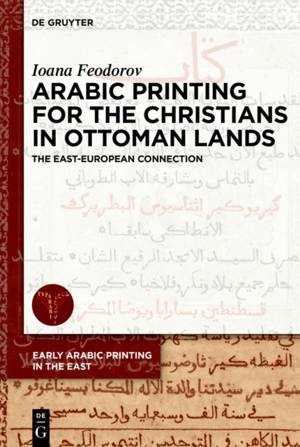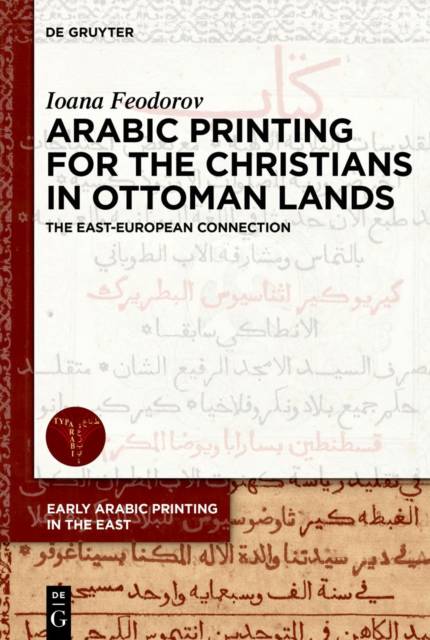
- Afhalen na 1 uur in een winkel met voorraad
- Gratis thuislevering in België vanaf € 30
- Ruim aanbod met 7 miljoen producten
- Afhalen na 1 uur in een winkel met voorraad
- Gratis thuislevering in België vanaf € 30
- Ruim aanbod met 7 miljoen producten
Zoeken
€ 173,95
+ 347 punten
Omschrijving
Arabic printing began in Eastern Europe and the Ottoman Levant through the association of the scholar and printer Antim the Iberian, later a metropolitan of Wallachia, and Athanasios III Dabbās, twice patriarch of Antioch, when the latter, as metropolitan of Aleppo, was sojourning in Bucharest. This partnership resulted in the first Greek and Arabic editions of the Book of the Divine Liturgies (Snagov, 1701) and the Horologion (Bucharest, 1702). With the tools and expertise that he acquired in Wallachia, Dabbās established in Aleppo in 1705 the first Arabic-type press in the Ottoman Empire. After the Church of Antioch divided into separate Greek Orthodox and Greek Catholic Patriarchates in 1724, a new press was opened for Arabic-speaking Greek Catholics by ʻAbdallāh Zāḫir in Ḫinsāra (Ḍūr al-Suwayr), Lebanon. Likewise, in 1752-1753, a press active at the Church of Saint George in Beirut printed Orthodox books that preserved elements of the Aleppo editions and were reprinted for decades. This book tells the story of the first Arabic-type presses in the Ottoman Empire which provided church books to the Arabic-speaking Christians, irrespective of their confession, through the efforts of ecclesiastical leaders such as the patriarchs Silvester of Antioch and Sofronios II of Constantinople and financial support from East European rulers like prince Constantin Brâncoveanu and hetman Ivan Mazepa.
Specificaties
Betrokkenen
- Auteur(s):
- Uitgeverij:
Inhoud
- Aantal bladzijden:
- 465
- Taal:
- Engels
- Reeks:
- Reeksnummer:
- nr. 1
Eigenschappen
- Productcode (EAN):
- 9783110786842
- Verschijningsdatum:
- 4/10/2023
- Uitvoering:
- Hardcover
- Formaat:
- Genaaid
- Afmetingen:
- 156 mm x 234 mm
- Gewicht:
- 825 g

Alleen bij Standaard Boekhandel
+ 347 punten op je klantenkaart van Standaard Boekhandel
Beoordelingen
We publiceren alleen reviews die voldoen aan de voorwaarden voor reviews. Bekijk onze voorwaarden voor reviews.








